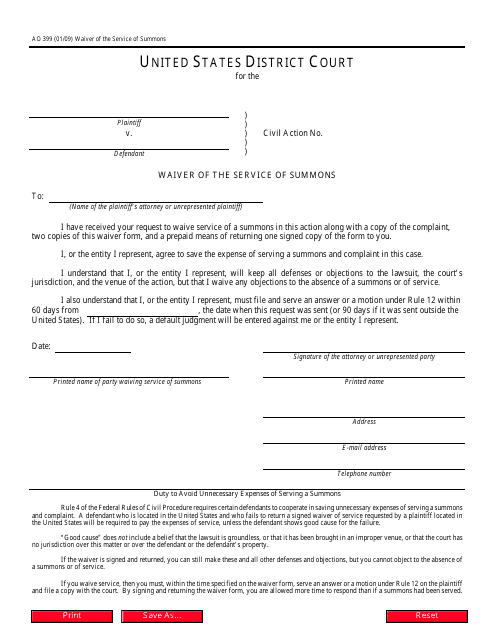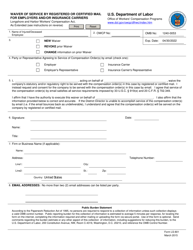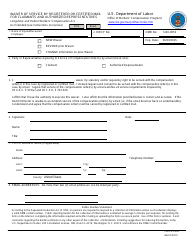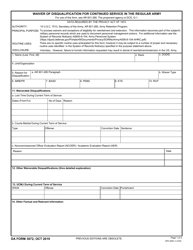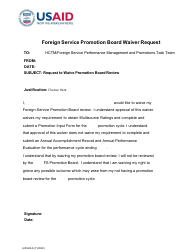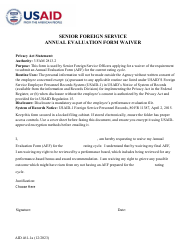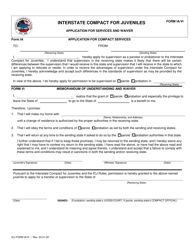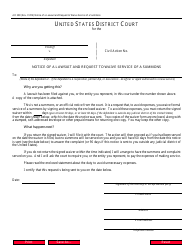Form AO399 Waiver of the Service of Summons
What Is Form AO399?
This is a legal form that was released by the United States Courts on January 1, 2009 and used country-wide. As of today, no separate filing guidelines for the form are provided by the issuing department.
FAQ
Q: What is Form AO399?
A: Form AO399 is a document used for waiver of the service of summons.
Q: What is the purpose of Form AO399?
A: The purpose of Form AO399 is to request the defendant to waive the service of summons.
Q: Who uses Form AO399?
A: Form AO399 is typically used by plaintiffs in a civil lawsuit.
Q: What does it mean to waive the service of summons?
A: Waiving the service of summons means that the defendant agrees to receive the lawsuit documents without being formally served by a process server.
Q: What information is required in Form AO399?
A: Form AO399 requires the defendant's name, address, and contact information, as well as their agreement to waive the service of summons.
Q: Is Form AO399 mandatory?
A: Whether Form AO399 is mandatory or not depends on the specific court rules. It is best to consult with an attorney or check the local court rules to determine if its use is required.
Q: What are the benefits of using Form AO399?
A: Using Form AO399 can save time and costs associated with formal service of summons, and allows the parties to proceed with the lawsuit more efficiently.
Q: What happens after Form AO399 is filed?
A: After Form AO399 is filed, the court will review the request and if accepted, the defendant will be deemed served and the lawsuit can proceed.
Q: Can the defendant refuse to waive the service of summons?
A: Yes, the defendant has the right to refuse to waive the service of summons.
Q: Are there any risks or disadvantages to using Form AO399?
A: There may be potential risks if the defendant does not receive the documents in a timely manner or if they do not understand their rights. It is advisable to consult with an attorney before deciding to use Form AO399.
Form Details:
- Released on January 1, 2009;
- The latest available edition released by the United States Courts;
- Easy to use and ready to print;
- Yours to fill out and keep for your records;
- Compatible with most PDF-viewing applications;
- Fill out the form in our online filing application.
Download a fillable version of Form AO399 by clicking the link below or browse more documents and templates provided by the United States Courts.
